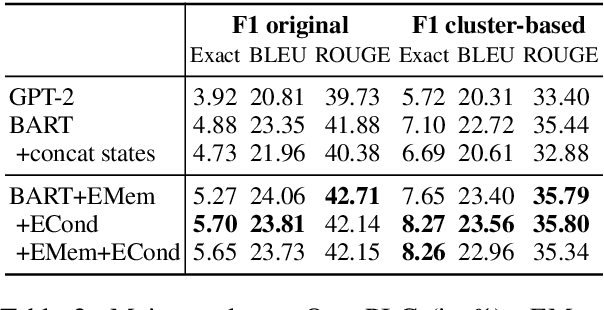OpenPI-C: A Better Benchmark and Stronger Baseline for Open-Vocabulary State Tracking
Paper and Code
Jun 20, 2023



Open-vocabulary state tracking is a more practical version of state tracking that aims to track state changes of entities throughout a process without restricting the state space and entity space. OpenPI is to date the only dataset annotated for open-vocabulary state tracking. However, we identify issues with the dataset quality and evaluation metric. For the dataset, we categorize 3 types of problems on the procedure level, step level and state change level respectively, and build a clean dataset OpenPI-C using multiple rounds of human judgment. For the evaluation metric, we propose a cluster-based metric to fix the original metric's preference for repetition. Model-wise, we enhance the seq2seq generation baseline by reinstating two key properties for state tracking: temporal dependency and entity awareness. The state of the world after an action is inherently dependent on the previous state. We model this dependency through a dynamic memory bank and allow the model to attend to the memory slots during decoding. On the other hand, the state of the world is naturally a union of the states of involved entities. Since the entities are unknown in the open-vocabulary setting, we propose a two-stage model that refines the state change prediction conditioned on entities predicted from the first stage. Empirical results show the effectiveness of our proposed model especially on the cluster-based metric. The code and data are released at https://github.com/shirley-wu/openpi-c
 Add to Chrome
Add to Chrome Add to Firefox
Add to Firefox Add to Edge
Add to Edge